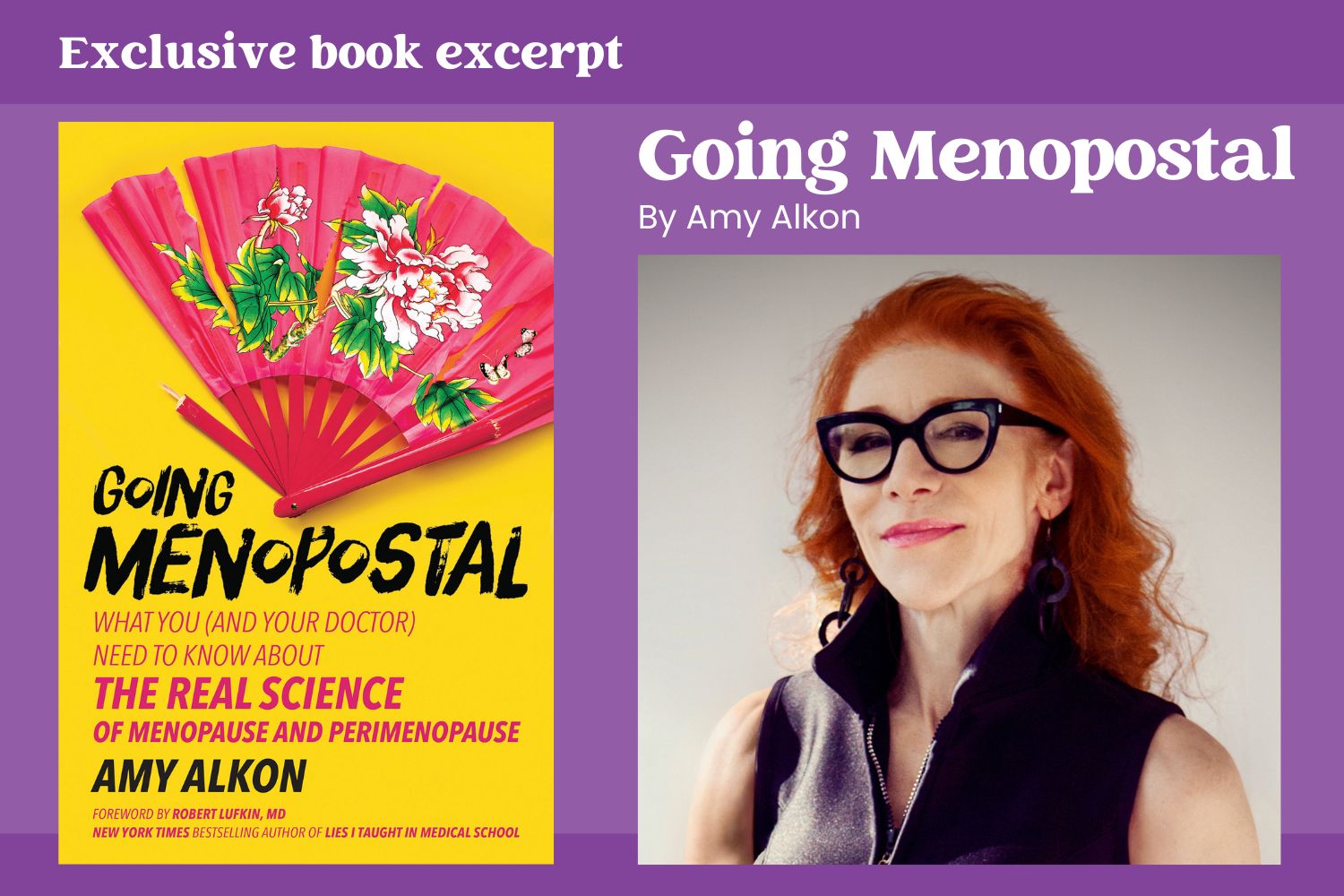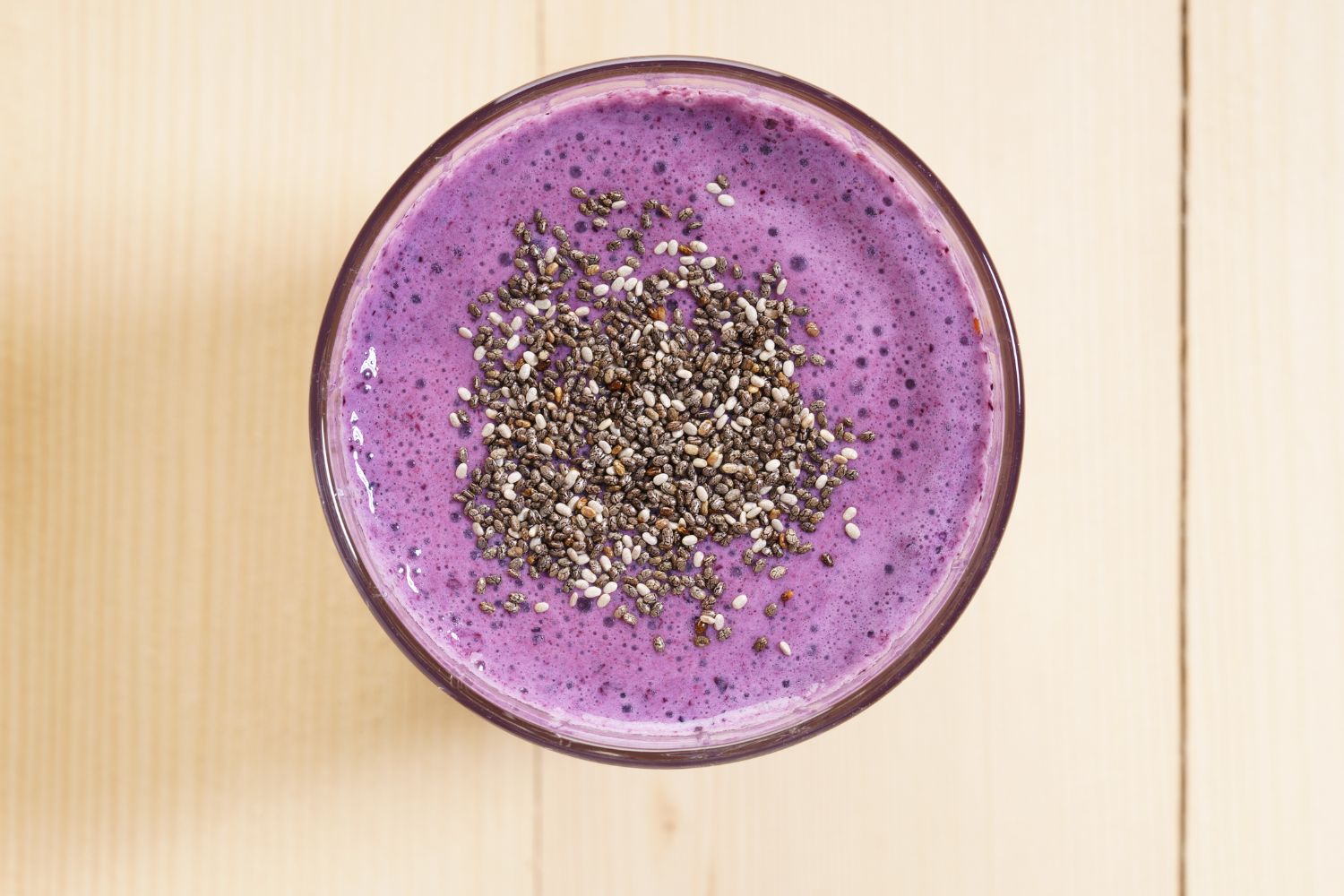
Perimenopause power? Yep, your hormones want to tell you more than you think
“WTF is happening?” As soon as I discovered that was the title of Perimenopause Power’s first chapter, I knew I would enjoy Maisie Hill’s latest book.
If you haven’t heard of Maisie Hill, this is the 40-year-old Londoner in a nutshell: She’s an expert in menstrual health, author of Period Power (her first book) and host of the podcast by the same name. She founded The Flow Collective, an online community that helps women harness their hormones and get their cycle working for them. Hill also is an acupuncturist and has studied at Integrative Women’s Health Institute, Red School, Nicole Jardim, and Nurturing Birth. She’s been through hell and back with her own menstrual pain issues, and is a self-described data geek. In other words, Maisie Hill is a welcome voice to what I like to call the “perimenopause awareness movement.”
At the beginning of Perimenopause Power, Hill lists some of the common symptoms of perimenopause — you know, hot flushes (as they say in the UK), joint and muscle pain, panic attacks, bladder changes, etc. and so forth. Then she launches into one the most interesting descriptions of perimenopause I’ve ever read:
Perimenopause is more than just physical symptoms. In the Autumn phase of life, we are confronted with thoughts and feelings that may have been suppressed for years; creative and sexual desires that suddenly emerge or disappear; a greater need for self-expression; and a deep longing to walk away from life as we know it.
And then there’s going about your daily life feeling like a tinderbox that’s ready to ignite, thanks to the irritability, impatience and red-hot rage that course through your body. Perimenopause is a baptism of fire that forces you to face yourself, your history and your future. There is an intensity to perimenopause that we are rarely prepared for, but desperately need to be, because rather than it be something that happens to us, we can have a sense of agency over our experience and find our power.”
Sing it, Maisie.
How many women are in perimenopause?
In Perimenopause Power, Maisie writes that in the last three years, there’s been a 37% increase in online searches for information about menopause. According to independent Nuffield Health group, she writes, 13 million women in the UK are currently perimenopausal and postmenopausal. “And, because of the increase in population size that came from the first- and second-wave baby boomers, it’s estimated that more than 50 million women and those assigned female at birth in the US have not reached the average age of menopause. By 2050, this figure is expected to quadruple.
“Yet the sheer volume and range of symptoms and needs of those who are peri- and postmenopausal is not reflected in the research, public health education and send. If the tables were turned and men were the ones who were wide awake drenched in sweat at 1am, if their cognitive function changed and their penises shrivelled up, how much money do you reckon would be coughed up to help them? There certainly wouldn’t be a worldwide shortage of HRT, as there currently is. After menopause we still have a third of our lives left and the impact of the hormone shifts during the menopause transition echoes throughout those decades, but there simply isn’t enough research being done to reflect this fact.”
In other words, perimenopause is kind of a big deal and I have a feeling it’s about to take off in a big way, so get ready.
Shortly after releasing Perimenopause Power in the US, Hill talks openly with us about menopause activism in the UK, coming out as autistic, and why she’s looking forward to her own perimenopause journey.
The Midst: You kick off Perimenopause Power by writing, “You might wonder what a 40-year-old is doing writing a book about menopause.” Then you mention you’re experiencing night sweats, which is a key perimenopause symptom. Do you think of yourself as perimenopausal?
Maisie Hill: I think of myself as tip-toeing around “early perimenopause.” I have some of the symptoms, especially just before my period, but my cycle is still relatively consistent.
So many of my friends and peer groups are going through perimenopause but don’t realize it. Recently a friend talked about how they got a new mattress and she couldn’t believe everyone raved about this particular brand because she was experiencing night sweats. The next post I saw from her was her sharing how her period had started and was trying to interrupt her relaxing Sunday … these two things may be related. I said, “Hmmm.. have you considered that perhaps the night sweats and period are related? Perhaps it’s not a problem with the mattress?”
My friend was like, “I’d never considered that.” This happens often. People don’t really know about the common symptoms of perimenopause and sometimes our symptoms can be explained by other things.
I feel like the U.K. is ahead of the U.S. in terms of perimenopause awareness — do you agree?
You think so? I mean, I believe reproductive rights on the whole in the UK is more progressive than in the United States. The US has other priorities. In the UK, pregnancy termination is socially acceptable and with NHS [United Kingdom National Health Service], we can easily access the birth control pill. But we still aren’t getting some forms of hormones, especially testosterone. Testosterone is really hard to get.
… I lived in New York in my 20s and am familiar with the struggles of trying to access healthcare in the US. … It makes sense that the UK seems more aware of perimenopause. In the UK, we have more menopause activism. We have the Menopause Matters campaign and now secondary schools are talking about menopause. Students in the UK are learning about how their mums are likely experiencing perimenopause.
How did you approach writing Perimenopause Power? What was your research process like, and what were your goals?
I really wanted to dispel the myths about this time of life. Most people’s understandings of perimenopause are based on scary headlines about Hormone Replacement Therapy. My goal is to look at the fear behind the headlines, understand the evidence about HRT, and present that info for others and make their own decisions.
I know how powerful information is. After writing my first book, Period Power, I received thousands of messages from people about the differences they’ve made with information.
Perimenopasue is the “unintended child” in the reproductive cycle. As a society, we’re currently talking about fertility issues and postpartum depression, but 15 years ago, people weren’t talking about fertility or postpartum publicly. In short, we’re making some progress, but there are still a lot of myths when it comes to women’s reproductive health and perimenopause.
In addition to talking about perimenopause, I’m also talking openly about my autism, which has been helpful for me. I don’t have much of a filter when it comes to talking about mental health and perimenopause. I’m discovering that more and more women are neurodiverse in some way. When it comes to mental health — we can’t keep the mask on anymore. Once we reach a certain age, we don’t want to keep up the pretenses — always smiling — enough is enough.
As I was writing Perimenopause Power, because of my background as a practitioner, I thought about some of the clients I’ve worked with over the years. Based on the stories and struggles with perimenopause that my clients shared with me, I asked myself, “What information do I need to include?” I did a lot of reading and research and read thousands of articles. Throughout the book-writing process, I realized that my autism has been useful — maybe there’s a good reason that I’m able to take in lots of data. I’m able to process a lot of technical and medical information, and come out with a paragraph that makes sense to the reader.
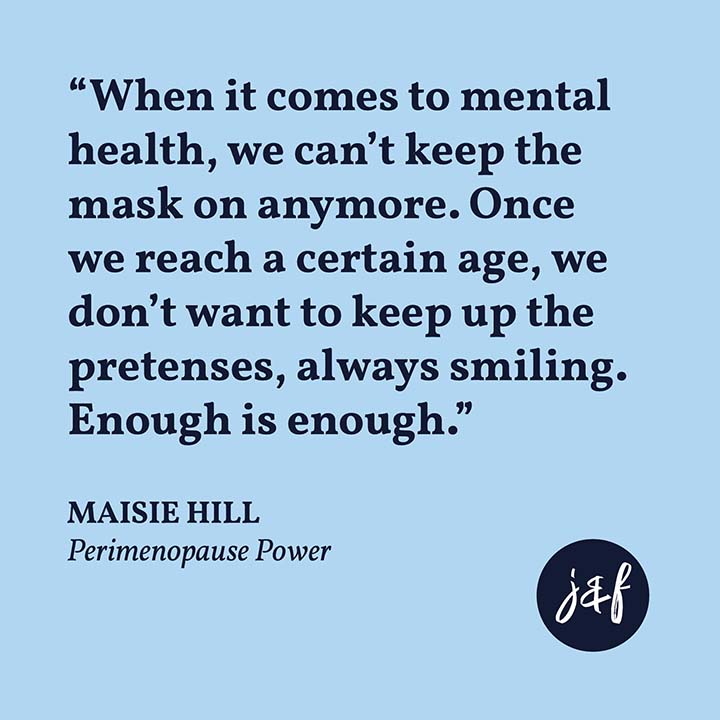
When it comes to perimenopause, there’s no shortage of negatives to dwell on. I’m grateful that you identify the positives about perimenopause — also a big part of my work at The Midst and Adventures in Perimenopause. In the last chapter of your book, you write, “Perimenopause is an opportunity to let go of everything that no longer serves you; to drop all the heavy stuff you’ve been carting around for years. Perimenopause is the perfect time for you to refine and redefine your life; an opportunity to reclaim joy and pleasure; to come into a deeper relationship with yourself; to unlearn putting others first.” How did you come to this positive place about perimenopause?
I’m fully aware of how we are socialized as women to put other people’s needs first. We try to put ourselves in boxes that are appealing to others. By the time we’re in perimenopause, we’re exhausted and might have a life that we didn’t dream about. Women tend to put other people’s desires before their own.
What’s fabulous about perimenopause is that, eventually, estrogen starts to slip away, and we don’t have as much estrogen. Have you heard the bit from Wanda Sykes in Not Normal?
When you’re young, you’re fertile, you’re producing eggs, you’re bringing life into the world, right? You’re bringing life into the world. And then you get older, no more eggs. You can’t bring any more life into the world… so they just set you on fire. What kind of shit is that? the older I get, the less I care. But you know what? There’s science behind that. There’s science behind that. Yeah. Because, when you’re young, right, your body is producing estrogen. Now, estrogen, that’s that hormone that makes you compassionate, makes you empathetic. Makes you say sorry all the damn time for no reason. Ladies, you know how many times we say sorry for no reason? Like, even when it’s not your fault. Like, you’re at the grocery store, somebody runs into your ankle with the grocery cart and you’re like, “Ooh, ooh, sorry, my ankle was in your way.” That’s that estrogen. And then, when you get older… it drastically reduces. You’re not producing estrogen like that anymore. Yeah. So it’s not the older you get, the less you care. It’s the older you get, you’re just becoming a man. That’s why you don’t give a fuck.
Some people say the purpose of estrogen is to care about others, and that serves a purpose when it comes to reproduction and finding a mate. But accommodating others starts to diminish when your estrogen decreases. I see that as a positive of the perimenopause phase of life. Think of perimenopause as a process of deciding what you really want in life. You can reevaluate and redecide if you want to be in certain relationships. I think perimenopause is a process of making decisions.
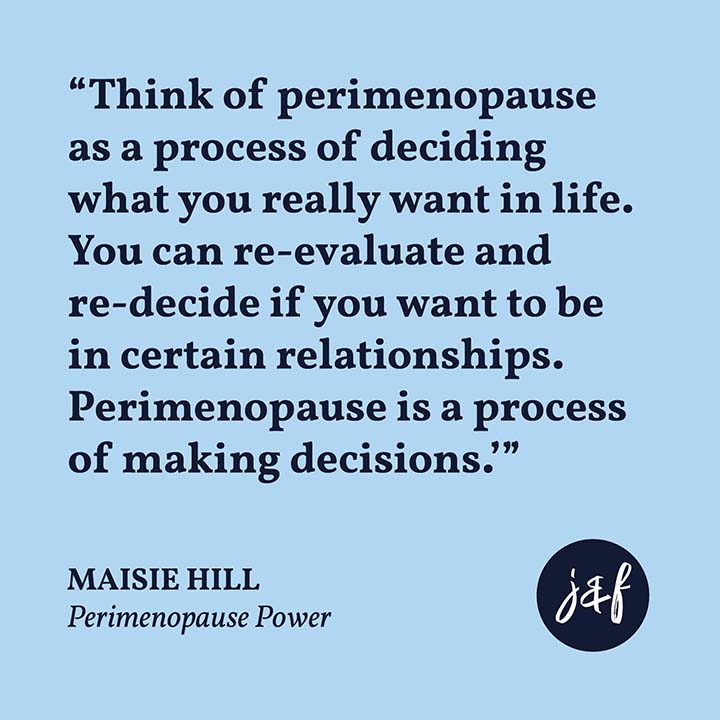
Did you know that at 40, you’re considered one of the oldest Millennials? I’m Gen X, and I have a feeling that as more Millennials hit their 40s and experience perimenopause, they’re not going to put up with the lack of awareness about perimenopause.
I agree. In women’s health, there’s been quite a bit of change with younger generations in the last five years or so. We’re in the age range of women who have gone through fertility issues, we’ve started conversations about reproductive issues, and now we’re talking about perimenopause — and our conversations will benefit younger generations of women.
Intolerance is really useful — women are standing up to say that lack of awareness of perimenopause is not acceptable. If men were going through similar issues, there would likely be strikes all over the place.
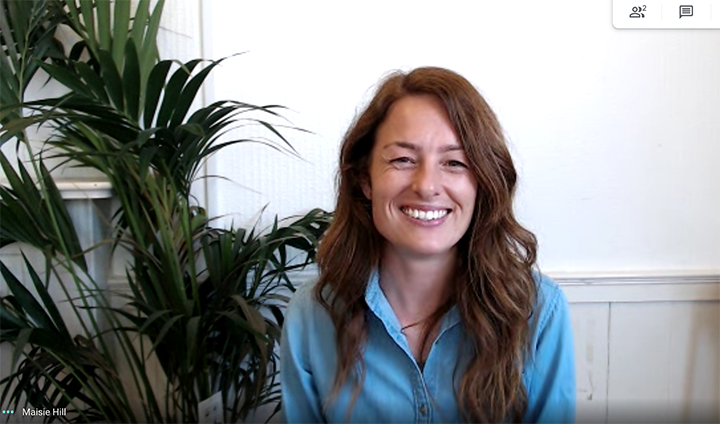
How do you feel about perimenopause personally? Are you looking forward to it or dreading it?
I really feel like my body is starting to change. It looks and feels different. I’m quite fortunate to have had relationships with older, wise women, and I view the aging body differently than many women do. I’m not not overly concerned with perimenopause and I’ve always looked forward to aging — I view aging as a benefit. What’s been really fantastic about writing Perimenopause Power is that it’s given me time to think about what I want. I am on board with HRT and realize what a difference that will make. I am OK with getting perimenopause symptoms because I what I can do about managing them. I will use hormones and talk with a nutritionist. In the book, I show the vast array of tools and techniques that can come into play, and I feel prepared.
When do you think perimenopause will become more “mainstream”? Do you think perimenopause should become as mainstream a topic as, say, childbirth?
Yes, perimenopause should be talked about more. Think about how much we talk about pregnancy — but a woman’s experience with obstetric medicine lasts only about a year. For many women, perimenopause can last for years if not a decade or more — and yet the study of perimenopause is just a tiny part of medicine. When you have issues around perimenopause, women are likely to see an OB-GYN, but they likely specialize in pregnancy, not perimenopause.
Perimenopause Power ranks into the top 10 Amazon books in the UK, so women are looking for information. On social media, you’ll find women who are desperately looking for information about perimenopause. There isn’t enough info and support.
Do you think we can look forward to change in medical school programs? As in, will med students start learning about perimenopause?
That’s a dangerous question to answer. It feels like we’re on the cusp of that happening, but it’s dangerous for me to answer — what if medical schools don’t start teaching about perimenopause? What’s it going to take? If there are this many people fighting for perimenopause awareness, raising education … and asking for more, what’s it going to take?
When I talk to clients who are in perimenopause, I hear over and over again that there were a number of opportunities for their doctors to really listen to them talk about their symptoms. But I hear over and over again that their doctors don’t stop to really listen. Women often have to see several doctors before one recognizes their perimenopause — even with the patient says, “Maybe my hot flashes are because I’m perimenopausal? Maybe I feel this way because of hormones?” And all too often, doctors will say, “You can’t be in perimenopause because you still have your menstrual cycle.”
You are an acupuncturist and write about how acupuncture can improve blood flow to ovaries and help support progesterone production. How does acupuncture help with relieving perimenopause symptoms?
Acupuncture is an interesting Chinese medicine. We look for patterns. An acupuncturist will usually ask a lot of weird and wonderful questions that seemingly have no relevance to your main symptom(s). That’s because acupuncturists group signs and symptoms into patterns. For example, if someone is experiencing night sweats, red cheeks, feels restless and anxious in the evening, is thirsty, and has trouble sleeping, we group those symptoms as a particular pattern.
If someone feels, say, intense headaches, breast tenderness, bloating, rage, and mood swings, that’s another group. This is why I look at various aspects of someone’s health and treat them holistically. When you’re treating night sweats, we look at the branch of systems and the root of health issues. We ask ourselves, “Do I really need to focus on the symptoms (aka the branch) or the root?” You’re always treating both the brand and the roots to give someone relief.
How do we find an acupuncture who specializes in treating perimenopause symptoms?
Find an acupuncturist who has experience and is passionate about supporting women’s health issues.
Some acupuncturists may not recognize perimenopause, but the great thing is they may not need to understand perimenopause specifically because the patterns may appear in men as well. The way that you treat and work with it wouldn’t change. Acupuncture is a system of medicine that was developed thousands of years ago, before we knew about hormones. Although, ancient literature does include insights about how blood flow slows down at this age.
What are the most important takeaways you’d like women to get from reading Perimenopause Power?
Although there are so many symptoms and ways that perimenopause can impact you, there are positives. Perimenopause is a window of opportunity — you don’t have to believe all the negative things you may have read about perimenopause symptoms. There are so many options out there. Don’t think of perimenopause as something that’s going to happen to you. Be an active participant in perimenopause and decide what you want perimenopause to look like.
Read an excerpt of Perimenopause Power — “Hormone Rehab” — here.
Hot flashes beware: Embr Wave is here


